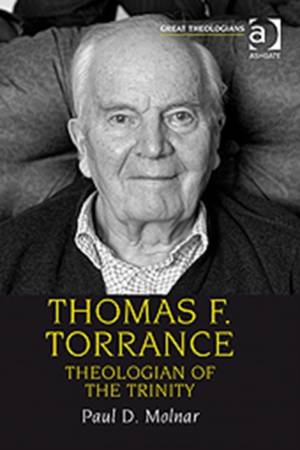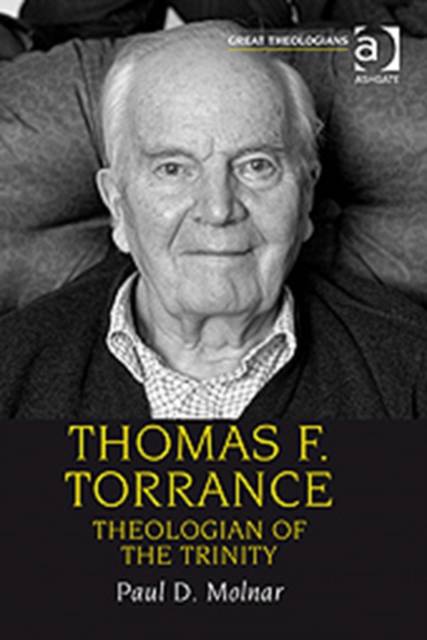
Bedankt voor het vertrouwen het afgelopen jaar! Om jou te bedanken bieden we GRATIS verzending (in België) aan op alles gedurende de hele maand januari.
- Afhalen na 1 uur in een winkel met voorraad
- In januari gratis thuislevering in België
- Ruim aanbod met 7 miljoen producten
Bedankt voor het vertrouwen het afgelopen jaar! Om jou te bedanken bieden we GRATIS verzending (in België) aan op alles gedurende de hele maand januari.
- Afhalen na 1 uur in een winkel met voorraad
- In januari gratis thuislevering in België
- Ruim aanbod met 7 miljoen producten
Zoeken
€ 94,95
+ 189 punten
Uitvoering
Omschrijving
This book provides an important study of the theology of Thomas F. Torrance, who is generally considered to have been one of the most significant theologians writing in English during the twentieth century, with a view toward showing how his theological method and all his major doctrinal views were shaped by his understanding of the doctrine of the Trinity. Torrance pursued a theology that was realist because he attempted to think in accordance with the unique nature of the object that is known. In holding to such a methodology, he drew an analogy between theology and natural science. This book demonstrates how, for Torrance, God relates with humanity within time and space so that creation finds its meaning in relation to God and not in itself; this enabled him to avoid many theological pitfalls such as agnosticism, subjectivism and dualism while explaining the positive implications of various Christian doctrines in a penetrating and compelling manner. This book offers an important resource for students of theology and for scholars who are interested in seeing how serious dogmatic theology shapes and should shape our understanding of the Christian life.
Specificaties
Betrokkenen
- Auteur(s):
- Uitgeverij:
Inhoud
- Aantal bladzijden:
- 382
- Taal:
- Engels
- Reeks:
Eigenschappen
- Productcode (EAN):
- 9780754652298
- Verschijningsdatum:
- 13/10/2009
- Uitvoering:
- Paperback
- Formaat:
- Trade paperback (VS)
- Afmetingen:
- 156 mm x 234 mm
- Gewicht:
- 535 g

Alleen bij Standaard Boekhandel
+ 189 punten op je klantenkaart van Standaard Boekhandel
Beoordelingen
We publiceren alleen reviews die voldoen aan de voorwaarden voor reviews. Bekijk onze voorwaarden voor reviews.









